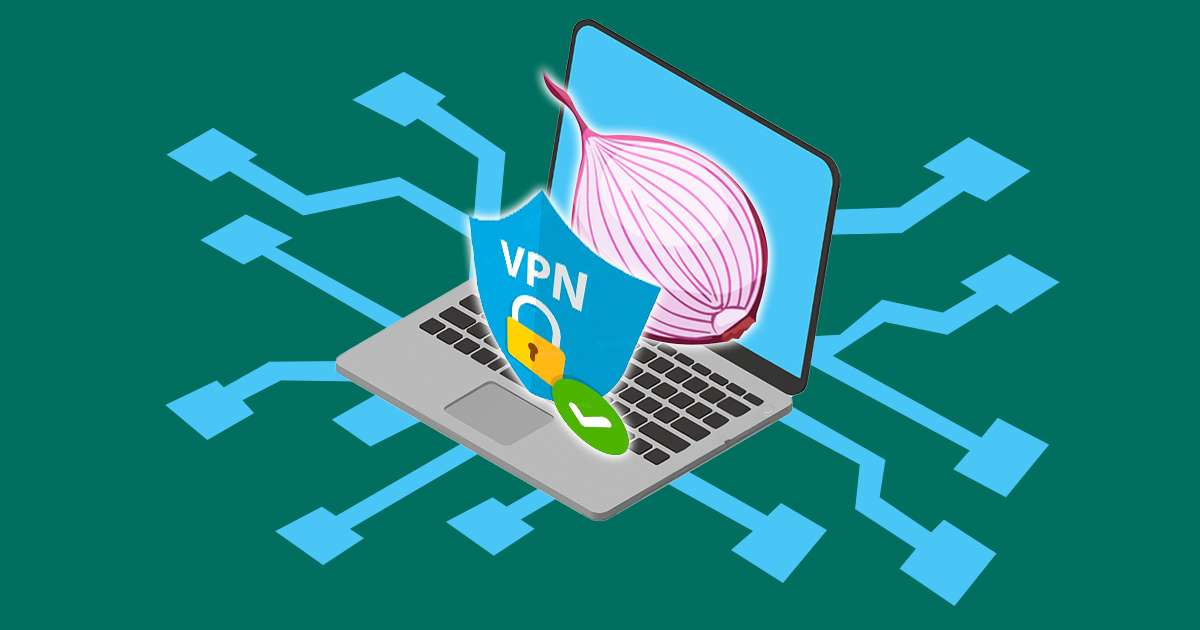What Is Onion Over VPN? Do You Need To Use One For Protection?

In an age where digital privacy is becoming increasingly elusive, using a Virtual Private Network (VPN) has become a crucial practice for safeguarding your data and online activities. VPNs establish a protected and encoded pathway between your device and the web, guaranteeing the concealment of your sensitive data from unauthorized observers. As you delve into the world of VPNs, you’ll likely encounter various terms related to online security. One such term is “onion over VPN.” This article aims to demystify the concept of onion over VPN, explaining its significance and whether it’s a vital tool for enhancing your online privacy.
What is Onion Over VPN?
Onion over VPN, referred to as Tor over VPN as well, is an advanced privacy measure that harnesses the synergies of a Virtual Private Network (VPN) and the Onion Router (Tor) network. This ingenious approach aims to fortify the anonymity and security of your online endeavors by introducing an additional layer of encryption before your data enters the Tor network. This strategic fusion not only integrates the robust privacy features of VPNs but also incorporates the untraceable characteristics of the Tor network, forging a formidable barrier against digital threats.
How Does it Work and Is It Safe?
Delving into the mechanics of Onion over VPN unveils a sophisticated amalgamation of technologies that empower users with enhanced privacy and security. To understand its inner workings, let’s dissect the process step by step:
1. The Onion Network and Tor Browser
At the heart of the Onion over VPN concept lies the ingenious Tor network and its accompanying browser. The Tor network comprises a network of volunteer-operated servers—commonly referred to as nodes—that your internet traffic traverses. With each hop, your data is encrypted, making it progressively harder to trace the path back to your original location. This cocoon of encryption and rerouting is what makes the Tor network so effective at preserving anonymity.
2. The Role of VPN
Introducing the VPN element into this equation introduces an additional layer of encryption and security. Upon connecting to a VPN server, your data undergoes encryption and is channeled securely to the server through a protected route. This initial encryption effectively hides your online actions from your Internet Service Provider (ISP) and other potential observers. Additionally, the VPN assigns you a fresh IP address, effectively camouflaging your real identity and location.
3. Onion Over VPN
Commencing the Onion over VPN procedure involves initiating a link with your chosen VPN server. This encrypted VPN connection subsequently serves as the entry point to the Tor network. Unlike traditional Tor usage, where your connection directly enters the Tor network, Onion over VPN ensures that your initial connection benefits from the VPN’s encryption. This fortified connection is then relayed into the Tor network, where it encounters the familiar chain of volunteer-operated nodes, each layer further obscuring your online actions.
4. Comprehensive Privacy and Security
The magic of Onion over VPN unfolds as this dual-layered connection traverses the Tor network. Your data, now fortified by both VPN and Tor’s encryption, undergoes a multi-stage process of encryption and decryption at each node. This strategic orchestration ensures that your digital footprint is shrouded in layers of obfuscation, rendering attempts to trace your online activities back to your physical location an arduous task. The result is a comprehensive digital identity cloak that guards against various forms of online surveillance. The combination of these two technologies establishes a multi-dimensional shield for your online presence.
Is It Safe?
While Onion over VPN indeed enhances your privacy defenses, it’s vital to approach its implementation with a nuanced understanding of its safety implications. One notable safety feature of this VPN is that your ISP and VPN provider are oblivious to your Tor usage, due to the initial layer of VPN encryption. This minimizes the risk of potential surveillance from these entities.

However, it’s essential to acknowledge the trust dynamic that arises when using Onion over VPN. Your VPN provider becomes privy to your Tor usage, which introduces an element of reliance on their commitment to privacy. While reputable VPN providers maintain a strict no-logs policy, the fact remains that you’re entrusting them with a pivotal fragment of your online identity.
The Pros and Cons of Onion Over VPN
The utilization of Onion over VPN yields a constellation of advantages and disadvantages, each wielding distinct implications for your online privacy:
Pros
- Added Encryption – Onion over VPN introduces an additional layer of encryption to your browsing activities, rendering it significantly harder for malevolent actors to intercept and decipher your data.
- Geo-Restrictions Bypass – By initiating a VPN connection before engaging Tor, you can elegantly sidestep geographical limitations and access content that would otherwise remain inaccessible in your region.
- Anonymity and Privacy – The amalgamation of VPN and Tor ensures your IP address is safeguarded from Tor’s entry node, substantially augmenting your level of anonymity.
- Protection from Traffic Correlation Attacks – Onion over VPN is an effective countermeasure against traffic correlation attacks, as it effectively obscures your actual IP address.
Cons
- Slower Speeds – The intricate layers of encryption and routing can sometimes lead to sluggish connection speeds, potentially impacting your overall online experience.
- Menace of Malicious Exit Nodes – While your data remains enciphered within the Tor network, the presence of malicious exit nodes poses a potential risk to your privacy.
- VPN Trust Factor – The implementation of Onion over VPN entails placing a measure of trust in your VPN provider, given their awareness of your Tor utilization.
- Contextual Suitability – Due to the potential for slower speeds, Onion over VPN is optimally reserved for security-sensitive activities rather than routine browsing.
Do You Need to Use Onion Over VPN?
The decision to adopt Onion over VPN hinges upon the nature of your online activities and the corresponding concerns. For individuals engaged in endeavors where heightened privacy and security are paramount—such as whistleblowing, journalism, or activism in environments marked by censorship—Onion over VPN proves to be an invaluable asset. This configuration empowers you to circumvent restrictions, safeguard your digital identity, and erect a barrier against potential adversaries.
This VPN embodies a compelling strategy to fortify your digital privacy arsenal. By skillfully intertwining the strengths of both VPNs and the Tor network, this hybrid approach furnishes a resilient shield against diverse online threats. However, it is prudent to remember that the decision to implement Onion over VPN should be informed by your specific needs and the level of privacy you deem imperative.
Onion Over VPN is a Great Option for Extra Data Protection
In a world where privacy breaches are becoming commonplace, taking proactive steps to secure your online presence is imperative. Onion over VPN offers a potent solution for those seeking an additional layer of data protection and anonymity. By combining the strengths of both a VPN and the Tor network, you create a powerful shield against various online threats. However, it’s essential to consider the trade-offs, such as potentially slower speeds and the need to trust your VPN provider.
Ultimately, whether you choose to utilize Onion over VPN depends on your individual needs and the level of privacy you require. Through well-considered choices regarding your online security approaches, you can traverse the virtual realm with increased ass

